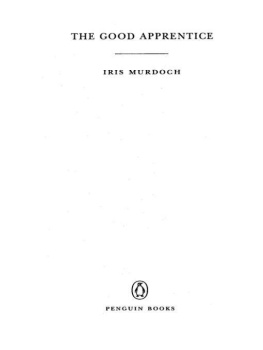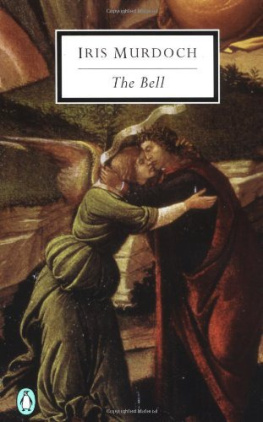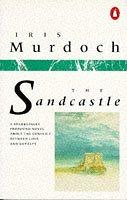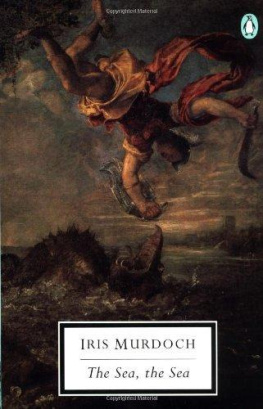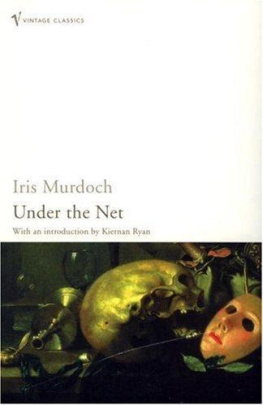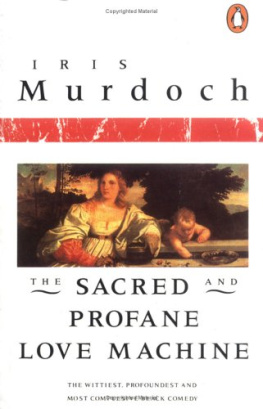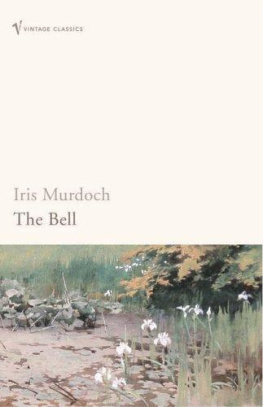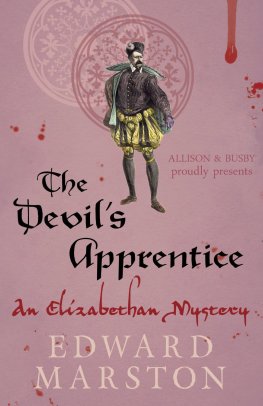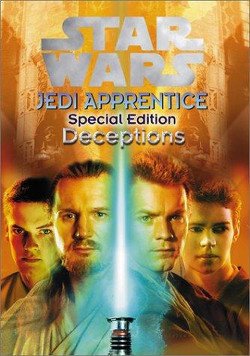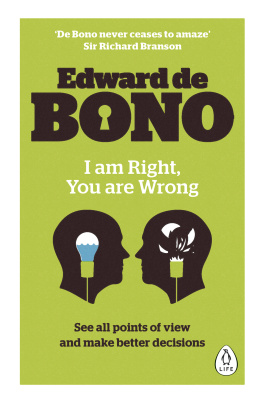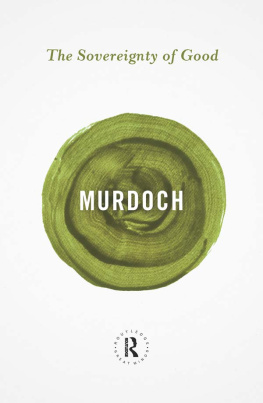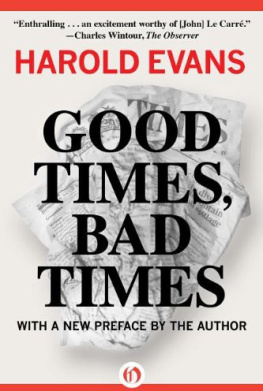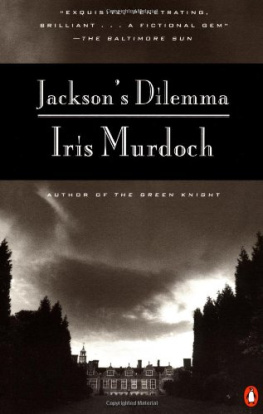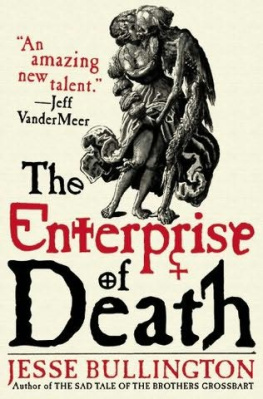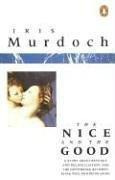Table of Contents
PENGUIN TWENTIETH-CENTURY CLASSICS
THE GOOD APPRENTICE
Iris Murdoch was born in Dublin in 1919, grew up in London, and received her university education at Oxford and later at Cambridge. In 1948 she became a fellow of St. Annes College, Oxford, where for many years she taught philosophy. In 1987 she was appointed Dame Commander, Order of the British Empire. She died on February 8, 1999. Murdoch wrote twenty-six novels, including Under the Net, her writing debut of 1954, and the Booker Prize winning The Sea, The Sea (1978). She received a number of other literary awards, among them the James Tait Black Memorial Prize for The Black Prince (1973) and the Witbread Prize for The Sacred and Profane Love Machine (1974). Her works of philosophy include Sartre: Romantic Realist (1953), Metaphysics as a Guide to Morals (1993), and Existentialists and Mystics (1998). She also wrote several plays and a volume of poetry.
By the same author
Philosophy
SARTRE, ROMANTIC REALIST
THE FIRE AND THE SUN
ACOSTOS: TWO PLATONIC DIALOGS
METAPHYSICS AS A GUIDE TO MORALS
EXISTENTIALISTS AND MYSTICS
Fiction
UNDER THE NET
THE FLIGHT FROM THE ENCHANTER
THE SANDCASTLE
THE BELL
SEVERED HEAD
AN UNOFFICIAL ROSE
THE UNICORN
THE ITALIAN GIRL
THE RED AND THE GREEN
THE TIME OF THE ANGLES
THE NICE AND THE GOOD
BRUNOS DREAM
A FAIRLY HONOURABLE DEFEAT
AN ACCIDENTAL MAN
THE BLACK PRINCE
THE SACRED AND PROFANE LOVE MACHINE
A WORD CHILD
HENRY AND CATO
THE SEA, THE SEA
NUNS AND SOLDIERS
THE PHILOSOPHERS PUPIL
THE GOOD APPRENTICE
THE BOOK AND THE BROTHERHOOD
THE MESSAGE TO THE PLANET
THE GREEN KNIGHT
JACKSONS DILEMMA
Plays
A SEVERED HEAD (with J. B. Priestly)
THE ITALIAN GIRL (with James Saunders)
THE THREE ARROWS and
THE SERVANTS AND THE SNOW
THE BLACK PRINCE
Poetry
A YEAR OF BIRDS
(Illustrated by Reynolds Stone)
PENGUIN BOOKS
Published by the Penguin Group
Penguin Putnam Inc., 375 Hudson Street,
New York, New York 10014, U.S.A.
Penguin Books Ltd, 27 Wrights Lane,
London W8 5TZ, England
Penguin Books Australia Ltd, Ringwood,
Victoria, Australia
Penguin Books Canada Ltd, 10 Alcorn Avenue,
Toronto, Ontario, Canada M4V 3B2
Penguin Books (N.Z.) Ltd, 182-190 Wairau Road,
Auckland 10, New Zealand
Penguin Books Ltd, Registered Offices:
Harmondsworth, Middlesex, England
First published in Great Britain by Chatto & Windus 1985
First published in the United States of America by Viking Penguin Inc. 1986
Published in Penguin Books 1987
This edition published 2001
9 10
Copyright Iris Murdoch, 1985 All rights reserved
eISBN : 978-1-101-49570-4
http://us.penguingroup.com
To Brigid Brophy
PART ONE
The Prodigal Son
I will arise and go to my father, and will say unto him, Father I have sinned against heaven and before thee, and am no more worthy to be called thy son.
These were not perhaps the actual words which Edward Baltram uttered to himselfon the occasion of his momentous and mysterious summons, yet their echo was not absent even then, and later he repeated them often.
The story begins however at an earlier point, on the evening in February when Edward played a disgraceful trick upon his friend and fellow student Mark Wilsden. The magisterial drug which transports its initiates to heaven or to hell had been surreptitiously administered. Mark, who had so loftily disapproved and so peevishly refused, now lay a helpless victim, giggling and babbling upon the lamplit divan bed in Edwards small bedsitter upon the second floor of a shabby terrace house in Camden Town. Edward, no trip for him that evening, clad in his magicians robe of sober power, stood looking down. He had concealed the drug in a sandwich, and watched the metamorphosis with wicked triumph. His sole anxiety vanished as soon as it became clear that Mark was destined to have a happy journey. If he had sent his friend even temporarily to hell he would have felt most uncomfortable. As it was, Marks face, beautiful at any time, was transfigured by a luminous ecstasy. His brown eyes were large, his full, eloquent lips were red and moist, his skin glowing as if illumined from within. The drops of sweat upon his forehead, the hairs of his elegantly clipped moustache and beard, stood out and shone as if his face had become a priestly mask inlaid with precious stones. With his longish head he looked like an Egyptian king. He looked like a wide-browed, huge-eyed god. He was a god, he had become divine, he was experiencing the Good Absolute, the vision of visions, the annihilation of the ego. Edward had heard of this. Such insights could last a lifetime. Mark would be grateful to him later. Edwards own experiences, though picturesque and thrilling, had not been mystical. Mark, whom Edward admired and loved, was a mystical type. Edward, contemplating the transfiguration of his friend, felt quite faint with joy.
Mark, who had been laughing continuously in a low undulating rhythmical giggle which sometimes sounded like a sob, now began to concentrate. He thrust his lips out as he often did when he was thinking.
Edward.
Yes, Mark.
How things are.
Yes.
How they are. They are in themselves, they are, I say, in themselves, thats the the secret.
Yes, indeed they are.
No. They are not just in themselves they are themselves. Everything is itself. It is a itself. But, you know, theres theres only one
Only one what?
Anything. Everything is all together like a big its shaggy
Shaggy?
Edward
Yes.
No its all scales, millions of scales and gills I can see it breathing its a fish I mean everything is its all one big fish
Edward tried to imagine the big shaggy scaly fish that was everything. But now his own visionary drug images, stirred up by sympathy, began to float by him as if the little room had become a deep lake full of waving reeds and quaking amoebas with big eyes and dark swollen forms bound in white ribbons, the raising of Lazarus, the creation of the world.
Oh now its pingling, said Mark suddenly. He tried to rise a little, but fell back on the divan. Its pingling, I can see the sky beyond oh the light all made of angels heads, like pins, pinheads, all shining, all together, all unfolding, like a long long scroll and the light its laser beams the spears, the spears hurt so oh Im so happy Im rising up, Im flying And God-is coming
Can you see God? Whats he like?
Hes coming like a like a lift .
Mark lay for a while in silence, gazing away into the distance of his vision, smiling, his parted lips bubbling a little. Then he raised his hand solemnly as if blessing Edward. Then quite suddenly he fell into a deep calm sleep.
Edward was disappointed. He considered trying to wake him but decided he had better not. Such sleeps could last a long while however, and by the time Mark awoke the fun might be over.
The telephone rang.
Edward?
Yes.
Its Sarah.
Hello, Sarah.
Could you come and see me? Im low. Come across and have a quick drink.
Oh all right just five minutes.
Edward returned to look at Mark. He looked like a sleeping knight in a picture; or the dead Christ, so handsome, unsullied and unhurt. He pulled a rug over his sleeping friend. Then he put a newspaper over the lamp to shade the light and left the room, locking the door behind him.

